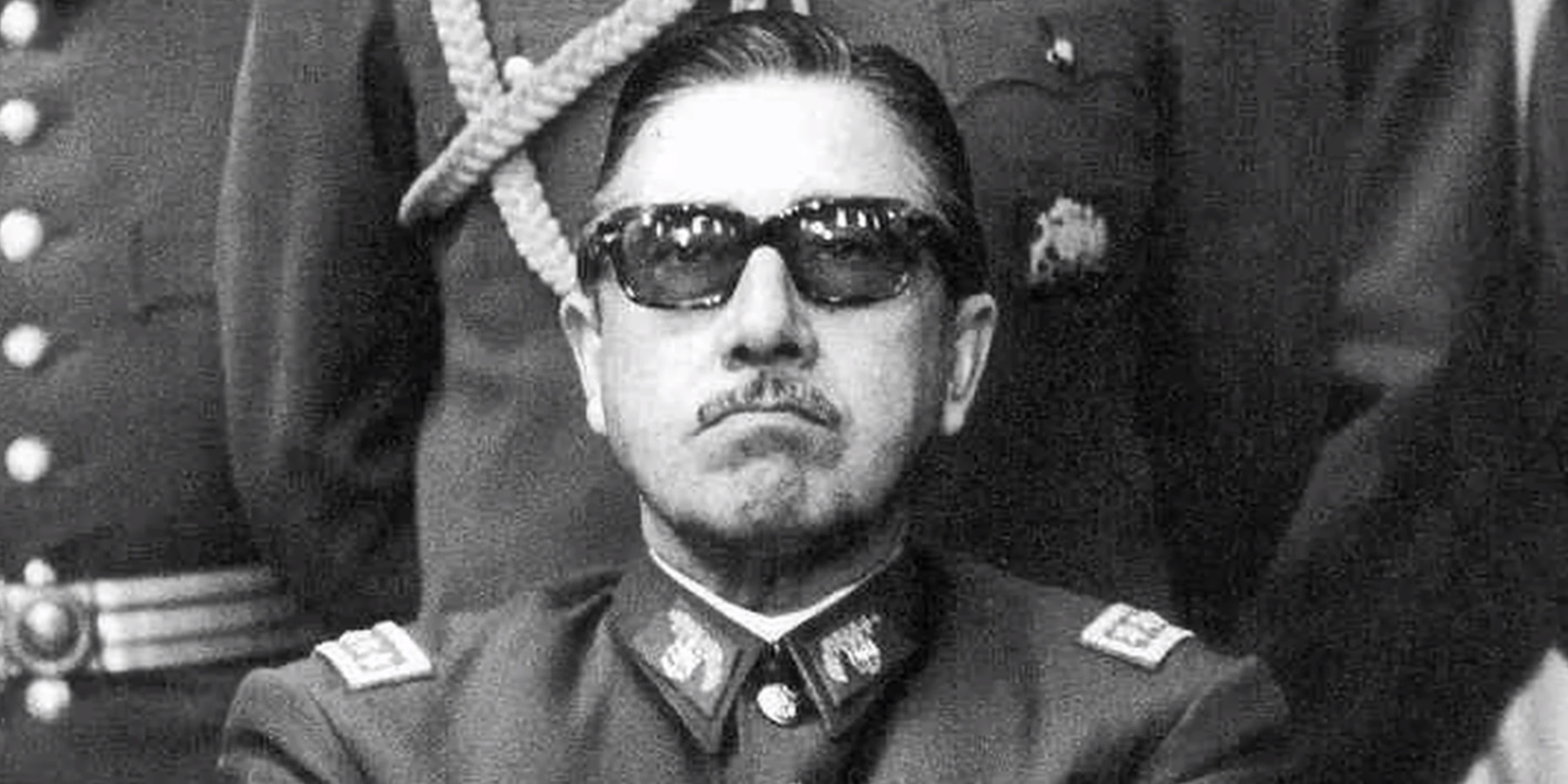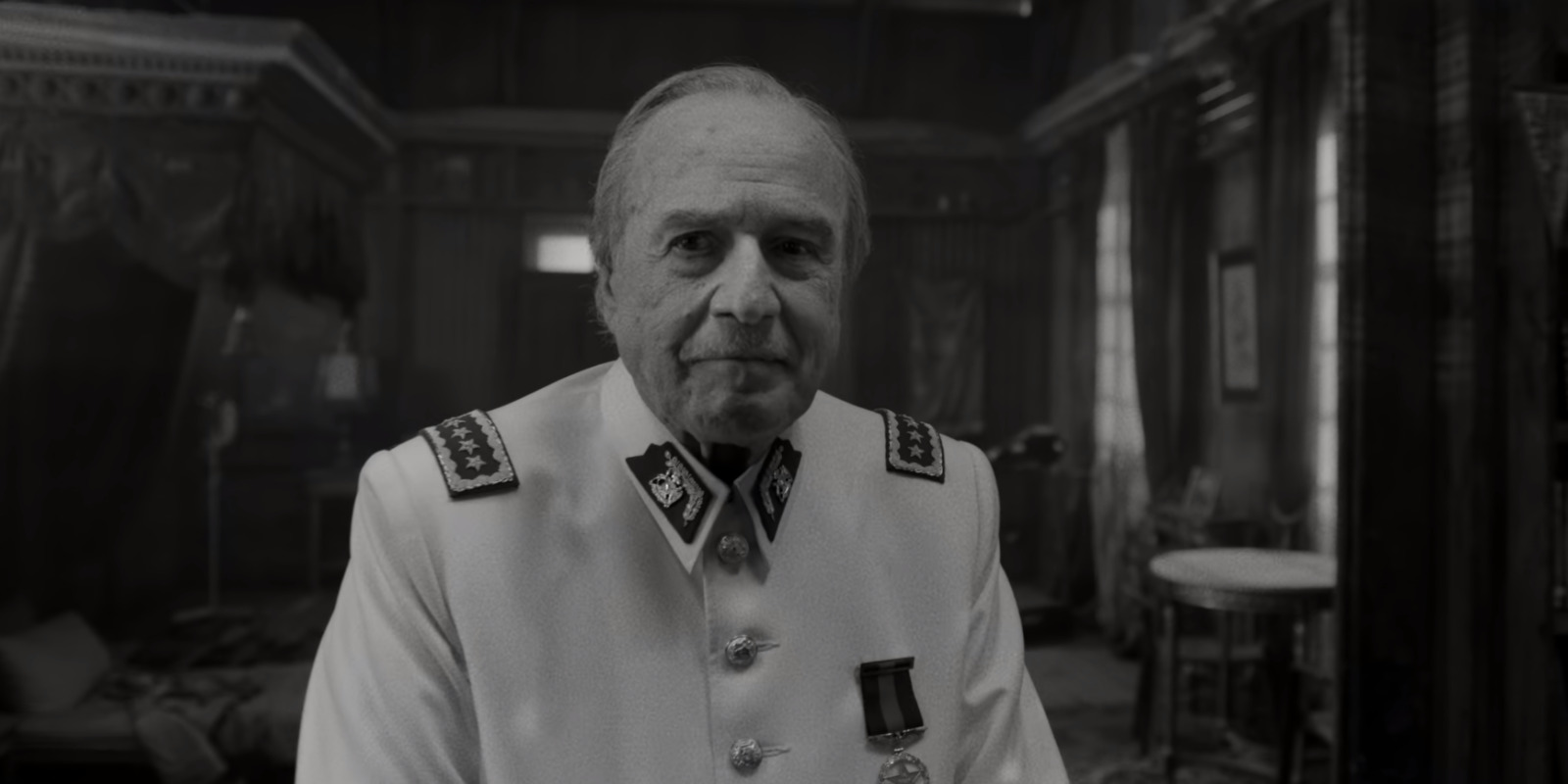Is El Conde Based on a True Story?
The Chilean horror-comedy Netflix film ‘El Conde,’ directed by Pablo Larraín, charts an unconventional but intriguing path as it depicts one of Chile’s most brutal rulers, Dictator Augusto Pinochet. Born and raised in a Parisian orphanage, Pinochet developed an inclination toward oppressive power from a young age and arrived in Chile decades later to rule over the…
The Chilean horror-comedy Netflix film ‘El Conde,’ directed by Pablo Larraín, charts an unconventional but intriguing path as it depicts one of Chile’s most brutal rulers, Dictator Augusto Pinochet. Born and raised in a Parisian orphanage, Pinochet developed an inclination toward oppressive power from a young age and arrived in Chile decades later to rule over the country as its dictator. However, after his rule ends, Pinochet is left in a desolate, remote town in the middle of nowhere with only his wife, Lucía, and loyal servant, Fyodor, to keep him company. At the end of his prime, Pinochet craves death, the news of which brings out his greedy kids, who bring a mysterious accountant/nun with them.
‘El Conde,’ a satirical film about oppressive governments told through the metaphorical lens of vampirism. Since the film references numerous historical events and casts recognizable personalities as instrumental characters within the narrative, viewers are bound to wonder just how much level of truth is behind this story. If so, here is everything you need to know about the origin of the film. SPOILERS AHEAD!
Is El Conde a Truly Story?
‘El Conde’ is partially inspired by a true story. As a historical/political satire, the film references a dark time in Chilean history and focuses on Augusto Pinochet, the ruthless dictator who ruled the country from 1973 to 1990. As depicted in the film, in 1973, Pinochet overthrew President Salvador Allende in a coup d’état, overtaking his authority and becoming the dictatorial head of the country himself.

Pinochet assumed the Presidential role in 1974, a title he held for almost three consecutive decades. During his rule, Pinochet worked against leftism in Chile, torturing thousands of his opponents. Furthermore, Pinochet’s policies for the free market, which left a lasting effect on the country’s economy, marked his reign.
Although the film briefly touches upon these aspects of Pinochet’s life, the narrative is much more interested in exploring the social and political metaphor it pitches in the premise. While Augusto “Count” Pinochet’s character is evidently based on his real-life counterpart, his character is an obvious satirical and fictionalized interpretation of the real-life man.
According to Director Pablo Larraín, who co-wrote ‘El Conde’ alongside Guillermo Calderón, the cultural legacy of Pinochet remains divided in different perceptions. For Larraín, the Pinochet regime broke the country through systemically committed human rights violations. Moreover, the impunity with which Pinochet’s crimes were treated further barred the people from healing from the adverse aftermath of his rule.
As such, ‘El Conde’ reflects Larraín’s emotions toward the former Chilean government and its head accordingly. Initially, the inspiration behind the film’s fitting, if outlandish, premise came to Larraín in three-fold. “Firstly, these famous black and white pictures of Pinochet back in the day by an Argentinian photographer,” said the filmmaker in a conversation with Deadline.
“We see him [Pinochet] wearing this cape. I was so intrigued by those images, and when I looked at them, I thought, I’m looking at a superhero of evil: What if he’s a vampire? The other thing is Jaime [Vadell], who plays Pinochet. I don’t know anyone else who could play the role. He’s a precious, wonderful actor. And then the third thing is that there are no other movies or television shows about Pinochet. This is the first one. So I thought, can we do it?”

With these elements in place, ‘El Conde’ finds its compelling and entirely unsubtle narrative and depiction of Pinochet as a bloodsucking monster. Therefore, despite a footing in history, the film is still a work of fiction. Many of the plot points revolving around Pinochet’s character, from his birth to his neverending life, are fictional components penned by the film’s writers. Likewise, Margaret Thatcher’s character, who plays a significant role in the narrative, occupies a similarly fictionalized place in the story.
Ultimately, the film remains a fictionalized political commentary on a real-life politician and the real-life complications of his legacy. The film’s everpresent vampirical element presents bleak but apt observations about the neverending nature of tyranny, which consistently appears throughout history in various forms.